Divine Communications
Doctor of Philosophy DegreePh.D. – Divine Communications
Program Purpose: The purpose of this program is to introduce and interject into the modern church and world professions a force of divine messengers, namely the Messiah’s prophets, and to insert His thoughts, advice, and solutions into contemporary affairs. This purpose extends to accrediting and otherwise credentialling this age-old divine communicant that has served the Almighty reliably and dynamically since the beginning of time.
Program Description
The Master of Arts in Global Leadership program is an advanced study of worldwide leadership rooted in Matthew 28:18-20; Ephesians 2:20, 1 Corinthians 12:28,29, Acts 26:18 and several other apostle dominant scriptures.Its foundation is restoration of divine order through the authoring mantles of God’s word. Students will learn eternal and ecclesial apostleship as designed and ordained by God. That is before and since the church was brought to earth by God’s spirit.
Core fundamentals weave its elements, features and functions throughout God’s leadership spectrum to portray the difference apostleship makes in the world, its institutions, nations, and citizens.
Subject matter spans the leadership are from God’s perspectives relative to His duties, responsibilities, obligations, governance, and sovereignty over the kingdoms of this world.
A highly interactive course that paints a comprehensive picture of apostleship and its architecture to install within those called to this office. Its principal effect is how it instills scripture’s brand of apostleship as modeled by Jesus and His apostles.
Program Objectives
The objectives of the Doctor of Philosophy-Divine Communications Program are to:
- Deliver multiple lectures that engage students in discussions and query response sessions, coach and cultivate its most vital intelligences and effective principles that assure students have sufficient information to pass the program and ample material to complete assignments.
- Review, etymologize, and pragmatize relevant terminology to promote student’s multifold appreciation, of course subject matter.
- Build on and bridge the bachelor’s and master’s programs introductory to advanced theories and principles to establish for students the path to informative and credible divine communications as portrayed in the Holy Scriptures.
- Enlarge students’ academic and ministerial minds to go from viewing prophecy as strictly futurism and prophets as nothing more than prophesiers to elevate their comprehension to embrace the higher performance features of their mantleship.
- Instruct students in the soulogical vein of divine communications so they explore and examine more than its verbalizations and predictions.
- Lead students through scripture’s disclosures and treatment of the prophets to anchor them in God’s need for and history with them, culminating in their ability to convey His mysteries persuasively.
- Show students how to extract scripture’s prophetic theologies and consultancies and use them to formulate contemporary prophetic doctrine and wisdom to propagate in public ministry.
- Assign students readings and audio video lectures that supplement live lectures and augment exercises in preparation for research projects, write papers that flush out course teachings.
- Enable students to licentiate their future followers and advocates by educating them in the fundamentals of criteria-based assessments, evaluations, credentialling, and compatible placement.
- Advance students critique and diagnostic training to the specialist and above level, so they aptly scrutinize prophecy and prophets to discern the true from the false and thereby accurately approve or reprove published divine communications.
- Teach students how to classify different prophet’s mantles and officiations and categorize their ministrations so they can match and cross match one with the other to recommend and engage the right (or best) divine communicant, those that minister relevantly and competently when referrals are solicited.
- Observe from course submissions, especially cases and surveys, student’s methods of scripturalizing modern prophets to appeal to and influence the contemporary world.
- Guide and assess student’s prophecy formulation, prophetic education and development, fusion of ancient and modern prophecies based on program teachings to refine their ability to remain within God’s prophetic continuum and retain its fidelity.
- Hold numerous divine communications sessions to enable student to self-assess and group critique the messages and mantleship resulting from lecturers, discussions, and other training aspects.
- Expose students to the biblical and spontaneous nuances of prophetic service so they breed strong discernment, strengthen their competence and confidence when delivering God’s divine communications.
- Brace students’ prophetic apparatus to function expertly and achieve the Lord’s results.
- Create experimentation venues that aid student’s ability to technolize their prophetic faculties for future divine communications and acquire and exercise prudence in God’s service.
- Render, through a targeted mix of specialized tactics, methods, and approaches student’s prophetic capacities and communication skills on par with secular counterparts and above.
- Qualify students to compete for compensable positions as divine communicants in and outside the Lord’s ecclesia.
- Buttress students’ capabilities for speaking on God’s behalf in various decisions, using training games, and simulations.
- Motivate and validate the potential professional as well as professional mantleship to cast vision for students’ employability and deployability at the end of the studies.
- Steer students’ founding and fashioning of a divine institute, agencies, governing sites, and centers as experts.
- Enable students to satisfactorily produce coursework and submission that meet completion criteria for passing the program with an 80% or better grade.
- R3 - 5 Years
- R3.0 GPA or Higher to Pass
Got Questions? Call us at 877-419-1299.
Program Details
Program Outcomes
The outcomes of the Doctor of Philosophy- Divine Communications Program will give students the following:
- The ability to qualify for the degree pursued.
- The ability to comprehend and carry out the duties, responsibilities as regimens of a divine communicator.
- The ability to conduct research beyond academia to probe the backgrounds of those to be communicated with on behalf of the Lord.
- The ability to research its products and proceeds prudently and persuasively in various venues.
- The ability to link and interconnect prophecies as God’s Communications with publishing and broadcast outlets in the church and the world.
- The ability to brand oneself as a divine communicator beyond prediction and correction.
- The ability to populate the modern world with God’s word and will in divine ways, such as speaking, writing, teaching, and advising.
- The ability to treat prophetically the issues, causes, effects, situations, and their circumstances as a divine communicant.
- The ability to scientize subject matter to cause its pragmatism and visions to be learned and taught to reach target groups.
- The ability to strategize, expand, and develop the teachings so they serve multiple purposes and meet a multiplicity of human and spiritual needs as the Lord’s voice.
- The ability to draft documents that standardize, regulate, uniform, and coordinate divine communications as an institution that employs and deploys divine communicants representing the Lord Jesus Christ as God’s logos.
- The ability to identify venues and authorities conducive to the functions and advantages of divine communications.
- The ability to communicate effective verbally and nonverbally in general as a divine communicant.
- The ability to adapt basic communications styles and approaches to God’s communication media.
- The ability to manage spiritual communication so they fluctuate between all of the strains and emphases of prophecy, such as future telling, professional counseling, advisement, intercession, decree, and declaration.
- The ability to speak to a wide range of spiritual, human, and divine issues and to contend with their natural and supernatural agents, the dark and the light.
- The ability to scripturalize divine communications when necessary and to use scripture to corroborate or authenticate messages claiming to be the word of the Lord on a matter.
- The ability to peoplize the program and to work well with authority figures, advisees, and high officials.
- The ability to legitimize the prophetic as a credible instrument of divine communication by integrating logic, intelligence, and rationale in all public communication.
- The ability to exercise discretion and prudence when discharging this office.
- The ability to demonstrate persuasively the scope of expertise and specialization to be exemplified by highly trained credible divine communicant.
- The ability to complete course and degree qualifying requirements successfully, including written and verbal examination, oral defense, presentment of created material or concept, demonstration of subject mastery; when assigned, completed field studies, extensive research and its outcomes that proves theories or shows success in casework and satisfactorily completed internship or apprenticeship of 500 or more hours.
Completion Requirements
Students must complete their training with passing grade 3.0 or higher in major core course requirements. Student must take a minimum of 45 credit hours with Price U to meet graduation requirements.
Homework, Assignments, Submissions, Tracking
The program syllabus and student requirements will be available through the student portal access. Lectures will be conducted online as necessary throughout their program.
Access to online lectures will be given through the Student Portal Access.
Quizzes and exams will also be completed through the portal’s class instructions and other requirements will be explained for each assignment.
Students will receive assignments, upload assignments, and see their grades inside of their portal.


